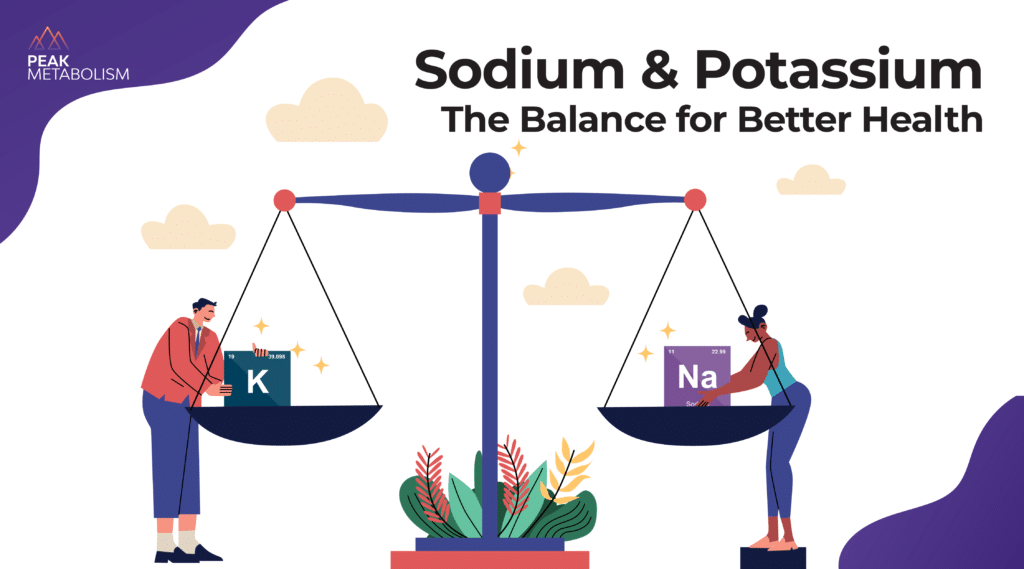
Unearth the fantastic world of the “magic mineral”, Magnesium, in our exploration of its numerous health benefits, particularly its impact on heart health, smooth muscle relaxation, and vasodilation. Yes, this common metal is not just used for making baseball bats and helicopter gearboxes but plays a vital role in human health. Just sit back, and let’s delve into the wide-ranging roles of this wonder mineral and understand how its deficiency influences heart disease and stress response.
What does magnesium do?
Magnesium has another name – the magic mineral – because of the many health-boosting properties it possesses. More than 600 of your body’s biochemical reactions involve magnesium, and it plays a vital role in:
Brain function
Magnesium is critical to brain function. Low levels of magnesium increase your risk of depression, while at optimal levels, it promotes calmness and relaxation, improves concentration and focus, and supports quicker thinking, helping you to rationalize problems and create solutions.
Nerve and muscle function
Magnesium helps maintain healthy nerve and muscle communication and facilitates muscle contraction and relaxation. It could also boost your performance during exercise and when playing sports.
Bone health
Magnesium helps keep your bones strong; in fact, about 60% of your body’s magnesium is in your bones.
Blood glucose regulation
Magnesium is involved in creating energy from your food and helps regulate your blood glucose levels. Close to half of the people who have type 2 diabetes are also deficient in magnesium, which hinders the ability of insulin to keep blood glucose under control.
Protein formation
Magnesium plays a role in creating new proteins from amino acid building blocks.
Gene maintenance
Magnesium helps to construct DNA and RNA, and repair them when they’re damaged.
Nervous system regulation
Magnesium supports the work of neurotransmitters, chemicals that transmit messages all through your brain and nervous system.
Blood pressure regulation
High blood pressure is one of the underlying causes of chronic disease. Magnesium can help reduce your blood pressure if it’s too high.
Reducing inflammation
Inflammation is an inherent problem seen in many conditions, from chronic pain to diabetes. Optimizing your magnesium intake can reduce levels of CRP and other inflammatory markers, particularly in people with weight problems and those with prediabetes.
Tackling insulin resistance
Insulin resistance is a leading cause of type 2 diabetes and metabolic syndrome. When you have insulin resistance, it prevents your liver and muscle cells from absorbing glucose from your blood. Magnesium is vital for glucose metabolism, so unsurprisingly, many people with diabetes and metabolic syndrome prove to have a deficiency.
For those managing or concerned about diabetes, it’s also vital to understand the benchmarks for diagnosis and ongoing monitoring. Discover why the commonly used HbA1c threshold of 6.5% may be too high for diagnosing diabetes and what alternative measures could be more effective.
Magnesium also supports a healthy immune system and can help relieve migraines.

The role of magnesium in heart health
There’s a well-documented relationship between magnesium and heart health. Magnesium is a vital cardiovascular regulator, supporting optimal metabolic, electrical, and vascular function (homeostasis). It regulates the ion transporters, like potassium and calcium channels, which modulate the electrical transmissions that make your heart beat.
Another way in which magnesium plays a key role in heart health is by stimulating vasodilation. Vasodilation is where the smooth muscles in your artery walls or major veins relax. Smooth muscle relaxation enables your blood vessels to expand, increasing blood flow and reducing blood pressure.
Magnesium deficiency is a key indicator for coronary artery disease (CAD), arrhythmia (fast, slow, or irregular heartbeat), and sudden cardiac death. Deficiencies in magnesium are also a common feature of people with high blood pressure, one of the primary risk factors for cardiovascular disease.
Magnesium deficiency also impacts patients with existing heart problems, who are highly susceptible to the combination of stress and magnesium deficiency. A poor stress response in the heart creates an oxygen debt in the myocardium (the heart’s central layer). In oxygen-deprived tissue, magnesium moves out of the intracellular space to the extracellular, allowing calcium to enter, which leads to an increased risk of arrhythmia and deteriorating cardiac function.
How much magnesium do I need?
The Recommended Dietary Allowance (RDA) for magnesium varies by age and sex. For example, an adult man requires 400 to 420 mg a day, an adult woman 310 to 320 mg. Interestingly, while a 14 to 18 years old boy needs 410 mg, a girl of the same age would need 360 mg – more than an adult woman.
If you’re not getting enough magnesium, it can lead to problems like:
- Hyperexcitability
- Muscle weakness
- insomnia
- Numbness
- Tingling
- Muscle cramps
- Seizures
- Changes in personality
- Arrhythmia
- Hypocalcemia (low blood calcium)
- Hypokalemia (low blood potassium)
These symptoms aren’t common, as most people get some magnesium from their diet. However, it’s not uncommon to have a degree of deficiency, which could be causing all sorts of issues with your health that you aren’t aware of, affecting your heart function and blood pressure, and increasing insulin resistance. The evidence for this is compelling, as demonstrated in a recent study that identified magnesium deficiency as a cause of cardiomyopathy. Encouragingly, it was reversible with the simple use of a magnesium supplement.
In essence, we can firmly establish magnesium as deserving its alternate name – the magic mineral. Its myriad roles in supporting healthy brain function, nervous system, bone health, inflammation management, and glucose regulation, are impressive in themselves. However, its crucial contribution to heart health positions it as a game-changer. Essentially, maintaining optimal magnesium levels may shield us from the potentially devastating effects of heart disease, arrhythmia, and other cardiovascular conditions. So, stick to your balanced diet, or consider supplements, but don’t forget to keep an eye on this miracle mineral, magnesium.
Interested in learning more about magnesium and its impact on your health? Don’t hesitate to reach out to us. We’re here to empower you with personalized information and support to help you stay heart-healthy and thrive.






